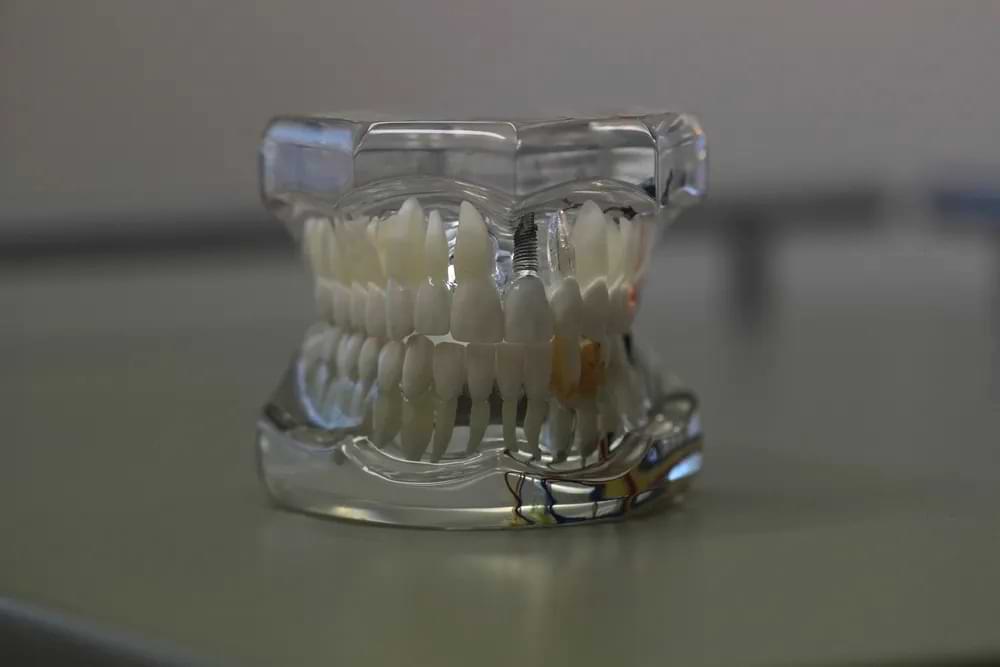
If you wish to replace your missing teeth, you may be considering partial dentures. Perhaps you already have partial dentures, but you can’t remember all the things your prosthetist told you about denture maintenance. Either way, it is good to be prepared for the issues that can arise with this tooth replacement option. Partial dentures for your front or back teeth are highly effective, but they are not without their drawbacks. However, there’s plenty you can do to ensure you get the most out of them.
What Are Partial Dentures?
Dentures are a common tooth replacement option for people who want to restore the look and feel of their smile. For those who need to replace every tooth on their upper or lower jaw, full dentures are best. If, on the other hand, someone’s looking for a way to replace just a few teeth at the front or back of their mouth, partial dentures are the answer.
A partial denture consists of at least one false tooth, known as the pontic tooth. This tooth is attached to the surrounding teeth, as well as an acrylic or metal base or framework to hold it in place. The pontic teeth are designed to totally blend in with your other teeth and will appear real. Partial dentures are a fantastic option for teeth replacement, but you do need to take your time getting used to them.
Troubleshooting Common Partial Denture Problems Like a Pro
I Can’t Get My Partial Denture Out
The downside that comes with fitting your mouth so securely is that partial dentures can be difficult to remove. This is especially true when they’re new or newly adjusted. Your dentures will loosen up with wear, and it’s important to remember that you’ll get better at handling them in time. This process is more challenging if you have arthritic fingers or no fingernails, but it should still get easier with practice.
In the meantime, there are some tips that will help you remove the average partial denture. Press down with equal force on both sides of the denture and wiggle it until it comes loose. Avoid yanking it to the side, as this can cause damage to the denture itself or the inside of your mouth. If you are really struggling to remove your partial denture after getting it adjusted, it may be because the clasps are too tight and they require readjusting by your prosthetist.
Can Partial Dentures Be Broken?
When cleaning or handling your dentures, make sure you’re doing so carefully. Partial dentures are fragile — the false teeth could become chipped, cracked or broken, and the metal base can be bent. If they do get damaged, do not attempt to fix them yourself. At-home repairs can easily damage them further, and over-the-counter glues may contain dangerous chemicals that shouldn’t be used on partial dentures. Instead, visit your denture prosthetist right away.
My Partial Dentures Are Irritating My Mouth
While partial dentures should fit you perfectly, they can become loose over time or as a result of changes in your jawbone and gums. Partial dentures that are not well fitted can cause irritation to your mouth and gums. If you notice this kind of irritation, make an appointment with your denture prosthetist so they can make the appropriate readjustments or repairs.
My Oral Health Care Is Dropping
Food particles and plaque can accumulate on the surface of the dentures and along the base. If you have partial dentures with resin clasps, these clasps might also exasperate issues with cavities and gums due to their placement within the mouth. The best way to avoid these problems is to maintain good dental hygiene and clean your partial dentures everyday.
Do not use toothpaste to clean your dentures. Use a denture solution and a denture brush to thoroughly scrub them, and then you can also clean them with water and soak overnight. Proper hygiene is crucial for the denture’s lifespan, so be sure to keep to a good cleaning schedule.
Should a Partial Denture Move?
While dentures are held in place by a metal framework, they also need help from your cheeks, tongue and lips. The muscles in these areas have to work to keep the denture in position, especially when you’re eating or talking. This can take a little while to get used to, so you will likely experience some denture slippage at first.
If the slipping persists, you may need to get them refitted by your denture prosthetist. Over time, your gums may recede or the surrounding teeth might change position, and this could reignite the issue of denture slippage. In this case, call your denture prosthetist and they will either adjust the dentures, replace them or use adhesive to solve the problem.
I’m Having Trouble Speaking & Eating With Partial Dentures
Due in part to denture slippage, partial dentures can impede your ability to speak or eat properly. Our advice is to eat mostly soft foods at first and take extra care when you pronounce difficult words. The best thing to do here is be patient, as it’ll get easier with time.
Find Quality & Caring Denture Prosthetists in Perth
If you are still experiencing problems with your dentures, or encounter a problem that isn’t covered here, reach out to your denture prosthetist. They have a wealth of knowledge and experience to guide you in this area. For denture care in Perth, at great-value cost, the experienced team at Direct Denture Care are happy to help. Contact us today!











